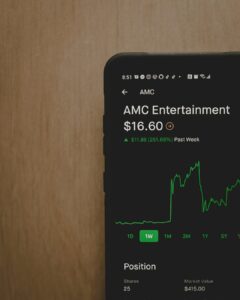Breaking Down the Rankings: Exploring the Methodology Behind Forex Broker Lists
When it comes to trading in the forex market, choosing the right broker is crucial. With so many options available, it can be overwhelming to determine which broker is the best fit for your trading needs. That’s where forex broker lists come in handy. These lists provide a comprehensive overview of the top forex brokers in the industry, making it easier for traders to make an informed decision. But have you ever wondered how these rankings are determined? In this article, we will explore the methodology behind forex broker lists.
1. Regulation and Licensing:
One of the key factors in assessing a forex broker’s credibility and reliability is its regulation and licensing. Forex broker lists take into account the regulatory bodies that oversee the broker’s operations. These bodies ensure that the broker follows strict guidelines and adheres to industry standards. Examples of well-known regulatory bodies include the Financial Conduct Authority (FCA) in the UK, the Australian Securities and Investments Commission (ASIC), and the Cyprus Securities and Exchange Commission (CySEC). Brokers regulated by reputable authorities are usually ranked higher on forex broker lists.
2. Trading Platforms and Tools:
The trading platform is the primary tool that traders use to execute trades. Forex broker lists evaluate the quality and functionality of the trading platforms offered by brokers. Factors such as user-friendliness, stability, customization options, and the availability of advanced trading tools are considered. Popular trading platforms like MetaTrader 4 and 5 (MT4/MT5) and cTrader are often preferred by traders due to their extensive features and ease of use. Brokers offering a wide range of platforms and tools are more likely to rank higher on these lists.
3. Spreads and Commissions:
Forex broker lists also take into account the spreads and commissions charged by brokers. The spread is the difference between the buy and sell price of a currency pair, and it represents the cost of trading. Lower spreads indicate tighter pricing and can significantly impact a trader’s profitability. Brokers offering competitive spreads and transparent pricing are favored in these rankings. Additionally, the commission structure of the broker is also considered, as some brokers charge commissions on top of spreads. Brokers with low spreads and commission fees are usually ranked higher.
4. Asset Selection:
The variety of tradable assets offered by a broker is another important criterion for ranking. Forex broker lists assess the number of currency pairs, commodities, indices, and stocks available for trading. Brokers with a diverse range of assets allow traders to diversify their portfolios and take advantage of different market opportunities. The more extensive the selection of assets, the higher the broker is likely to rank on these lists.
5. Customer Service and Support:
Quality customer service is crucial for any broker. Forex broker lists evaluate the level of customer support provided by brokers, including the availability of multilingual support, response time, and the range of contact options (phone, email, live chat). Brokers that offer excellent customer service and are responsive to client queries and concerns are more likely to rank higher on these lists.
6. Educational Resources:
Forex trading is a complex and dynamic market, and traders often require educational resources to enhance their knowledge and skills. Forex broker lists assess the educational materials offered by brokers, such as webinars, tutorials, articles, and trading guides. Brokers that provide comprehensive and high-quality educational resources are considered more valuable to traders and are ranked accordingly.
7. User Reviews and Feedback:
Last but not least, user reviews and feedback play a significant role in determining the rankings on forex broker lists. Traders’ experiences and opinions provide valuable insights into the broker’s reliability, execution speed, order execution, and overall trading experience. Brokers with positive user reviews and testimonials are more likely to rank higher on these lists.
In conclusion, forex broker lists provide traders with a valuable resource to compare and evaluate different brokers. These lists consider various factors, including regulation and licensing, trading platforms and tools, spreads and commissions, asset selection, customer service, educational resources, and user reviews. By understanding the methodology behind these rankings, traders can make informed decisions and choose a broker that aligns with their trading needs and preferences.






